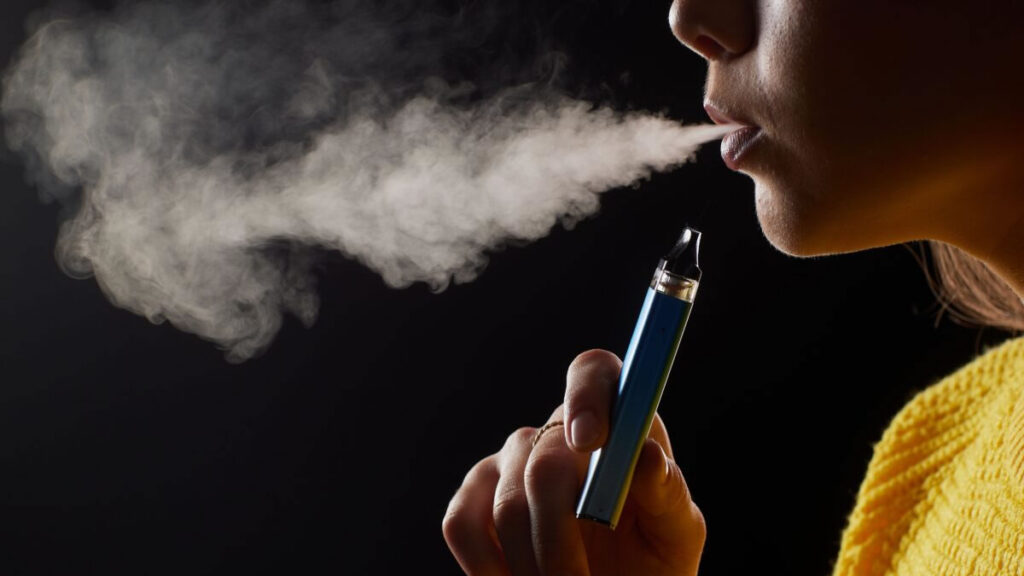The U.S. Supreme Court is set to hear arguments on Monday in a case that pits the Food and Drug Administration (FDA) against the vaping industry. The case centers on the agency's efforts to regulate e-cigarettes and curb the use of nicotine products among minors.
Vaping, which involves inhaling an aerosol mist from an electronic cigarette or similar device, has become increasingly popular among middle- and high-school students. In 2023, over 2.1 million youth, including 10% of high schoolers, reported e-cigarette use, with 26.3% of those students using an e-cigarette product daily.
FDA Charged with Preventing Nicotine Addiction in Minors
Under a 2009 federal law, the FDA is responsible for curbing the use of tobacco and nicotine products among minors to prevent addiction. E-cigarettes, which entered the U.S. market in 2006, fall under the agency's regulatory purview.
William Schultz, a former FDA deputy commissioner for policy, notes that while the agency's regulation of cigarettes in the 1990s led to a significant decrease in youth smoking, e-cigarettes have "filled the vacuum." The U.S. Surgeon General has warned that nicotine exposure during adolescence can impact learning, memory, and attention, and increase the risk of future addiction to other drugs, including cigarettes.
Vaping Industry Challenges FDA's Regulatory Approach
The case before the Supreme Court focuses on how the FDA has gone about regulating e-cigarettes. The agency has made it increasingly difficult for vaping producers to sell products using flavors that appeal to kids, such as "pink lemonade," "rainbow road," and "suicide bunny mother's milk and cookies."
To date, the FDA has approved only 27 products from a handful of companies, while the vaping industry has challenged the agency's decisions not to allow millions of other products on the market. The industry argues that the FDA's decision-making process has been arbitrary and capricious, with the agency's specific demands evolving over time.
Lower Courts Divided on FDA's Conduct
Seven appeals courts have largely approved the FDA's decisions, while two have at least partially rejected them. However, the Fifth Circuit Court of Appeals rejected virtually every aspect of the FDA's decision-making process, calling it a "surprise switcheroo."
The Fifth Circuit's decision threatened to allow all vaping product manufacturers to put their products on the market and keep them there, potentially requiring the FDA to completely remake its regulatory regime. The Biden administration has challenged this ruling, conceding that the agency's regulatory guidance has evolved.
Experts Weigh In on FDA's Regulatory Challenges
Law professor Jonathan Adler, who has written extensively on the subject, acknowledges that the FDA's conduct has not been ideal, with the agency's specific demands being a moving target for vaping companies. However, former FDA deputy commissioner Schultz points out that the agency has had to gain experience with the explosion of vaping devices over the past few years, just as it did with earlier products it was charged with regulating.
The FDA stopped looking at the marketing of vaping products to children because it concluded that there was no way to allow flavored e-cigarettes without harming large numbers of children. To date, the only flavored e-cigarettes the agency has approved for sale are tobacco and menthol flavored, as they are more likely to help adults quit regular cigarettes and less likely to attract underage users.
Potential Impact of Supreme Court's Decision
The Supreme Court's ruling in this case could take many forms, with experts suggesting that the decision may be narrow. However, the conservative supermajority has not hesitated to redraw the regulatory map in the past, and if it does so in this case, it could open the floodgates to flavored e-cigarettes that greatly increase the number of kids vaping their way through middle and high school.
The case highlights the ongoing battle between the FDA and the vaping industry, as the agency seeks to balance the potential benefits of e-cigarettes for adult smokers with the risks of nicotine addiction among minors.
Meet Nick Schager, the co-founder of our vaping website. With a solid foundation of over 10 years in the industry, Nick brings an unparalleled depth of knowledge, having an extensive understanding of more than 1000 vaping products.




